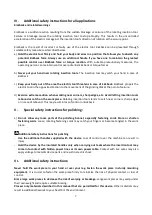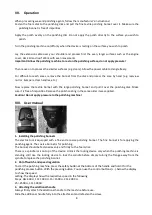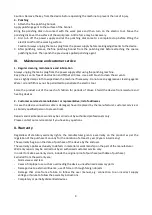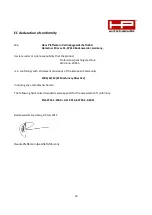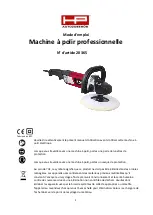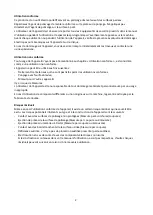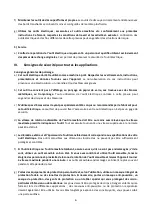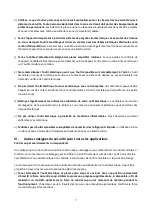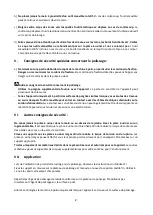
4
II.
General safety instructions for electric tools
WARNING Read all the safety instructions and instructions for use.
Failure to heed the safety
instructions and instructions for use may lead to electric shock, fire and/or serious injury.
Keep all safety instructions and instructions for use for future reference.
The term "electric tool" used in the safety instructions refers to line-operated electric power tools (with
power cord).
1) Workplace safety
a)
Keep your work area clean and well lit.
Disorder or poorly lit work areas may result in accidents.
b)
Do not use the electric tool in potentially explosive surroundings where combustible liquids, gases or
dust may be present.
Electric tools produce sparks that may ignite dust or vapors.
c)
Keep the product away from children and other persons during use.
You could lose control of the
device if you are distracted.
2) Electrical safety
a)
The electric tool's plug must fit the power outlet. Do not modify the plug in any way. Do not use any
adapter plugs in combination with electric tools with protective grounding.
Unmodified plugs and
fitting power outlets reduce the risk of electric shock.
b)
Avoid physical contact with grounded surfaces such as pipes, heaters, stovetops and refrigerators.
There is a heightened risk of electric shock if your body is grounded.
c)
Keep electric tools away from rain and moisture.
Water permeating into the electric tool increases the
risk of electric shock.
d)
Do not misuse the cable to carry or hang up the electric tool or to disconnect the plug from the power
outlet. Keep the cable away from heat sources, oil, sharp corners or moving device parts.
Damaged or
tangled cables heighten the risk of electric shock.
e)
When working with electric tools outdoors, use only extension cables suitable for outdoor use.
Use of
an extension cable that is suitable for outdoor use lowers the risk of electric shock.
f)
If use of the electric tool in damp surroundings is unavoidable, use a residual current operated circuit
breaker.
The use of a residual current device lowers the risk of electric shock.
3) Personal safety
a)
Be alert, pay attention to what you are doing and exercise common sense when working with electric
tools. Do not use electric tools when you are tired and/or under the influence of drugs, alcohol or
medication.
One moment of inattention while using electric tools is enough to lead to severe injury.


















